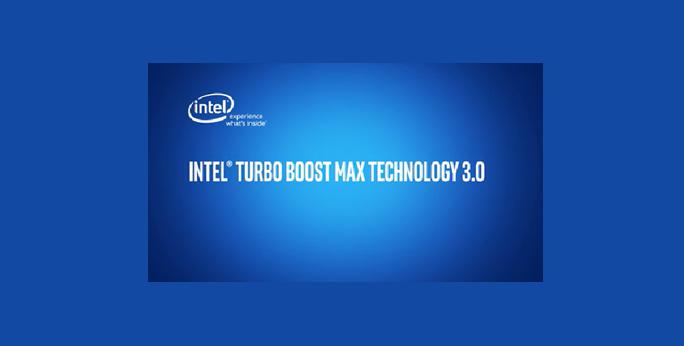Intel Turbo Boost Technology or TBTM is technology that enables the processor core of a computer to run faster than the marked frequency. Although the boost enables the core to run faster, the processor should work in the power, temperature, and specification limits of the Thermal Design Power (TDP). The outcome of this activity – performance of both single and multi-threaded applications is enhanced by manifolds.
Intel Turbo Boost Technology has two versions, Intel Turbo Boost v 2.0 and Intel Turbo Boost v3.0.
Intel Turbo Boost v2.0
Intel Turbo Boost Technology 2.01 accelerates processor and graphics performance for peak loads, automatically allowing processor cores to run faster than the rated operating frequency if they’re operating below power, current, and temperature specification limits.
Intel Turbo Boost v3.0
Unlike, Intel Turbo Boost v2.0, Intel Turbo Boost v3.0 provides one or more cores with the ability to run at a frequency higher than other cores. It also automatically assign applications to specific cores.

There’s a setting in Intel Turbo Boost v3.0 that specifies whether TBMT should place the demanding work in priority order on all cores in the core list or whether place the demanding work on higher performance (diverse) cores. The order of high-performance cores is ranked from highest to lowest. To take full advantage of Intel Turbo Boost Max Technology, users should select higher performance diverse cores.
Intel Turbo Boost Max Technology capability is currently available in select Intel processors only and when enabled,
In this post, we will see the method to enable Intel Turbo Boost Technology 3.0. Intel Turbo Boost Max Technology (TBMT) 3.0 supports the following versions of Windows 10 OS:
Disable Intel Turbo Boost Max Technology
Intel Turbo Boost Technology is enabled by default. You can disable or enable the technology with a switch in the BIOS. There are no other user controllable settings via which you can change Intel Turbo Boost Technology operation. Once enabled, Intel Turbo Boost Technology works automatically under operating system control.
To disable Intel Turbo Boost Max Technology, follow these steps:
Enter the BIOS setup and from the System Utilities screen, select System Configuration.
Then, navigate to BIOS/Platform Configuration (RBSU) > Performance Options > Intel (R) Turbo Boost Technology and press Enter.
Next, select any of the following setting and press Enter.
Press F10 to save the changes and exit
Many users believe that Turbo Boost Technology can be enabled by the core. This is not true as Intel Turbo Boost Technology is a processor technology and can’t be enabled or disabled by the core. If one core is active, the technology is enabled.
How do I enable or disable Turbo Boost in Windows?
To enable or disable Turbo Boost in Windows 11 or Windows 10 computers, you need to use the BIOS settings. For that, you can open up the BIOS screen and switch to the System Utilities screen. Then, go to BIOS/Platform Configuration (RBSU) > Performance Options > Intel (R) Turbo Boost Technology. Here you can find two options – Enabled and Disabled. Choose the Enabled option to turn it on and the Disabled option to turn it off.
Is it possible to enable or disable Intel Turbo Boost Technology by core in BIOS?
No, it is not possible to enable or disable the Intel Turbo Boost Technology by core. No matter which operating system you use, you cannot do that, as stated above. As it is a processor technology, you can either enable or disable it for your processor.
Also, many people confuse Intel Turbo Boost Technology with Intel Turbo Boost Technology Monitor. However, there’s a difference between the two. While Intel Turbo Boost Technology is an Intel processor technology, Intel Turbo Boost Technology Monitor is a tool that shows Intel Turbo Boost Technology in action.









